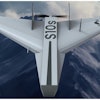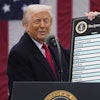BERLIN (AP) -- German industrial orders in November rose by a strong 5.2 percent on the month fueled by brisk foreign demand for capital goods, official data showed Thursday.
Domestic industrial orders in November rose by 1.5 percent and demand from abroad was up by 8.2 percent, leading to the "remarkably strong" overall increase of more than 5 percent, Germany's Economy Ministry said. November's uptick followed an increase of 1.6 percent a month earlier.
German industrial orders in November were 21.7 percent higher than a year ago, when the financial crisis had plunged the country into its deepest postwar recession, the ministry added.
The country's recovery has made it a standout among the 17 countries that use the euro currency, where smaller economies such as Ireland, Greece and Portugal are struggling with huge debts and deep recessions.
Orders for consumer goods in November dipped slightly by 1.6 percent, but orders for capital goods were up by 9.1 percent on the month -- and a staggering 29.3 percent on the year, the ministry said.
The data point to a positive fourth quarter and "the industry is in a good starting position for the new year," it added.
Germany, Europe's biggest economy and the world's No. 2 exporter after China, has made an impressive mostly export-driven comeback after seeing its economy contract by 4.7 percent last year.
Germany's central bank has forecast the economy will grow by 3.6 percent in 2010 and 2 percent this year. The number of jobless, meanwhile, has fallen to about 3 million.
Domestic industrial orders in November rose by 1.5 percent and demand from abroad was up by 8.2 percent, leading to the "remarkably strong" overall increase of more than 5 percent, Germany's Economy Ministry said. November's uptick followed an increase of 1.6 percent a month earlier.
German industrial orders in November were 21.7 percent higher than a year ago, when the financial crisis had plunged the country into its deepest postwar recession, the ministry added.
The country's recovery has made it a standout among the 17 countries that use the euro currency, where smaller economies such as Ireland, Greece and Portugal are struggling with huge debts and deep recessions.
Orders for consumer goods in November dipped slightly by 1.6 percent, but orders for capital goods were up by 9.1 percent on the month -- and a staggering 29.3 percent on the year, the ministry said.
The data point to a positive fourth quarter and "the industry is in a good starting position for the new year," it added.
Germany, Europe's biggest economy and the world's No. 2 exporter after China, has made an impressive mostly export-driven comeback after seeing its economy contract by 4.7 percent last year.
Germany's central bank has forecast the economy will grow by 3.6 percent in 2010 and 2 percent this year. The number of jobless, meanwhile, has fallen to about 3 million.


















